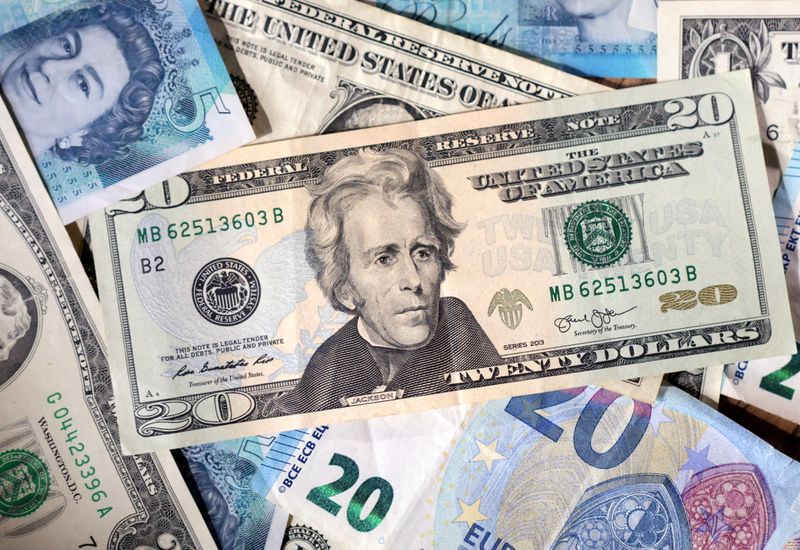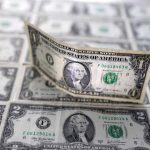Analysis-Dollar gains from rivals’ trouble may lack staying power

By Saqib Iqbal Ahmed and Laura Matthews
NEW YORK (Reuters) -A rebound in the dollar over the past month is unlikely to last given it was largely due to repositioning over temporary factors including the disruption of U.S. economic data due to the U.S. government shutdown and upheaval in the governments of rival currencies.
The greenback has climbed about 3% against a basket of currencies since mid-September, recovering from more than three-year lows after falling nearly 11% earlier this year.
Speculators’ net short bets on the dollar fell to $9.86 billion from a two-year high of $20.96 billion during that period, CFTC data showed before the U.S. government shutdown disrupted releases.
Options markets also show the turn in sentiment in favor of the dollar with one- and three-month EUR/USD risk reversals recently hitting their most euro bearish levels since mid-June.
Still, analysts are broadly skeptical of the dollar’s recovery.
“In the three- to six-month view, I think the dollar is going to be falling because I think the U.S. economy is going to weaken and the interest rates are going to come down,” said Marc Chandler, chief market strategist at Bannockburn Capital Markets.
Much of the dollar’s recent rebound can be attributed to investors covering bearish bets on the currency.
“What’s going on in markets is basically a positioning adjustment,” said Jayati Bharadwaj, a global FX strategist at TD Securities.
Indeed, some analysts said the dollar rally may be running out of steam.
“We’ve definitely seen a very nice period of dollar strength,” said Joel Kruger, market strategist at London-based LMAX Group, which operates multiple global institutional FX exchanges.
Kruger sees risks for further dollar weakness in the near term.
INTERNATIONAL DEVELOPMENTS BOOST DOLLAR
The dollar sold off in the first half of the year on worries over fading U.S. exceptionalism, concerns about a hit to economic growth from President Donald Trump’s protectionist trade stance, and the specter of a ballooning U.S. budget and international trade deficits.
But given the interruption of U.S. economic releases and political crises outside the United States — in Japan and France — investor attention has swung away from the dollar’s travails.
The euro snapped a two-month winning streak to trade down about 1.3% for October, while the yen has slipped nearly 3% against the rising greenback.
Chaos and uncertainty in France, the euro zone’s second-largest economy, have caused the euro to weaken against the greenback, while political shifts in Japan have swayed investor expectations for the Bank of Japan’s monetary and fiscal policy, piling pressure on the yen.
Do you want to build your own blog website similar to this one? Contact us








